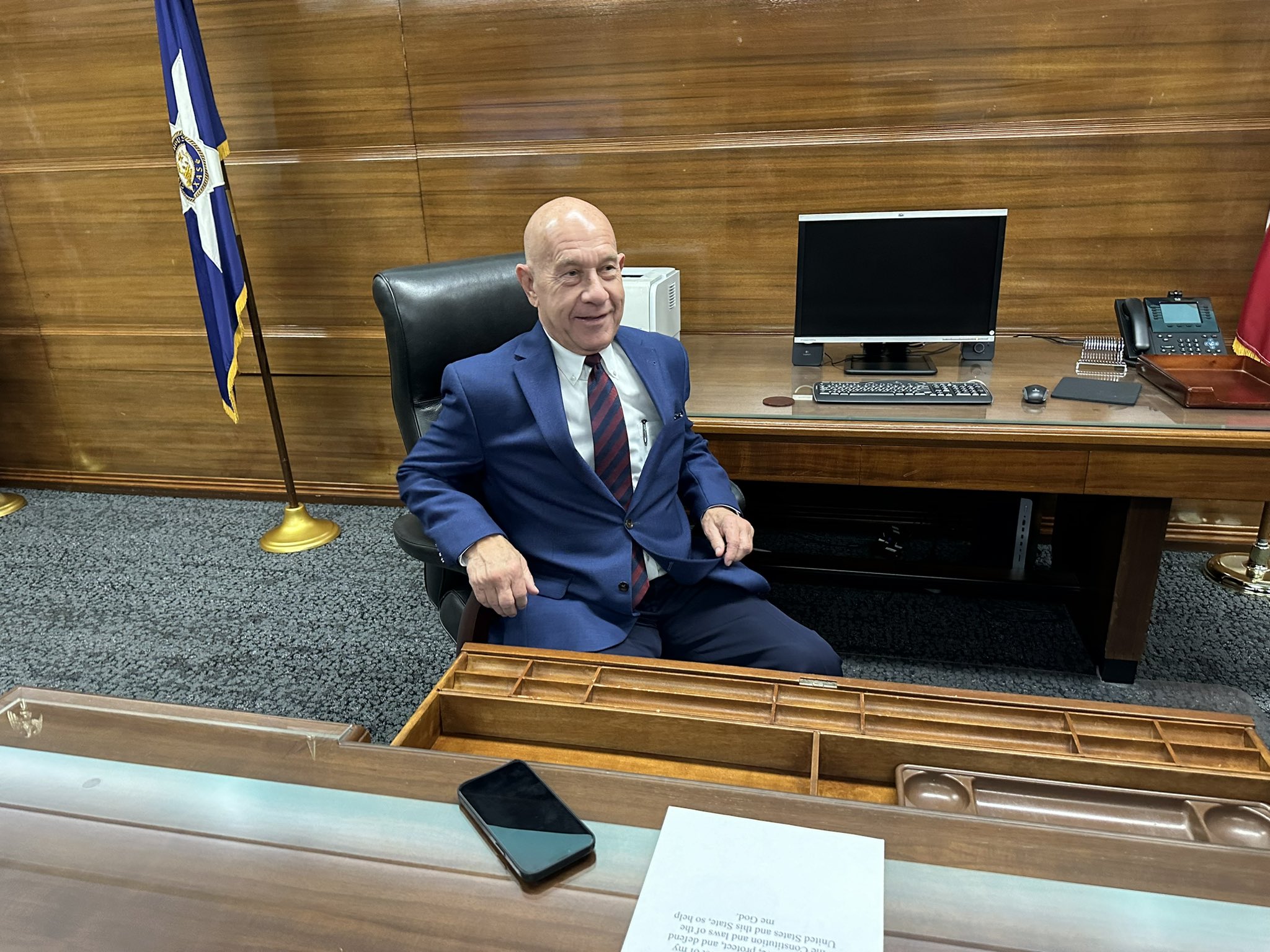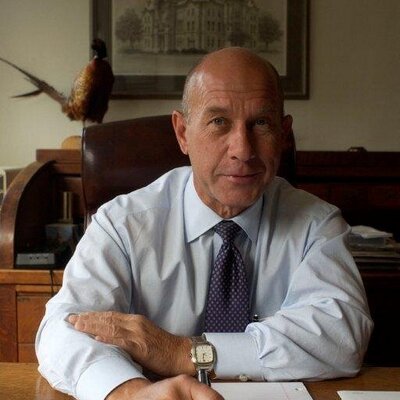(Note: As I have done in past elections, I am running a series of Q&As for judicial candidates in contested Democratic primaries. This is intended to help introduce the candidates and their experiences to those who plan to vote in March. I am running these responses in the order that I receive them from the candidates. Much more information about Democratic primary candidates, including links to the interviews and judicial Q&As, can be found on Erik Manning’s spreadsheet.

Allison Jackson Mathis
1. Who are you and what are you running for?
I’m Allison Jackson Mathis and I’m running for judge of the 338th Criminal District Court.
2. What kind of cases does this court hear?
The 338th is a district court, so it hears felony cases. Felonies are anything that can be punished by over a year in custody, so they’re serious cases that will impact the rest of a person’s life. They can range from things like “simple” drug possession all the way up to capital murder.
3. Why are you running for this particular bench?
In May I was sitting in the back of the 338th District Court watching a hearing that I was not a part of. A friend of mine, a really great attorney named Wade Smith, was asking the incumbent judge to release his client on bond. His client was dying, and the hospital had said they couldn’t do anything else for him and so they sent him back to the jail to die. What made this hearing particularly unique was that there were officials from the jail there, testifying that they didn’t have the resources at the jail to take care of a dying man, and that they were doing the best they could, but he was basically dying in a dirty diaper on a gurney in a hallway. This man had not been convicted of anything yet- and his doctors were saying he only had days or weeks to live. His quality of life was terrible. He had to have another inmate hold the phone up to his mouth to talk to his wife. But the judge said no, she would not let him out or even reduce his bond so that he could die at home with his family.
Bond is supposed to only be used to ensure that people come back to court for their next court appearance. Judges are allowed to consider whether or not the person is a danger to the community when they’re setting bonds, too. I sat in the back of that courtroom and I watched the dying man’s wife wipe tears from her eyes. To me, this was not justice. It wasn’t compassionate or reasonable. This man could not walk. How is he a flight risk? How is he a danger? At a very basic level, I thought it was also just a horrible misuse of the very scant resources at the jail.
There are other things, too: things like revoking bonds without there being a violation (which you can read about here), lack of open access to the court (which you can read about here and here) and most recently, a higher court’s castigation of the Court after it made inconsistent findings that protected an attorney at the expense of a defendant’s appellate rights (which you can read about here).
One of the things that lead me to go to law school and become a defense attorney in the first place was my belief that one should not be a spectator to unfairness. When you see it, you have to do something about it: call it out, push back from it, act against it. And that’s why I’m running for this bench.
4. What are your qualifications for this job?
The only type of law I’ve ever practiced is criminal law. I graduated cum laude from South Texas College of Law, here in Houston, in 2012. I’ve had a really interesting career (if I do say so myself!) and I’ve been fortunate to be able to practice in a lot of different jurisdictions. Currently, I have my own practice, and I mostly take court-appointed cases because I very strongly believe that how much money a person has should not determine the outcome of a criminal case against them.
My last job was running an office of public defenders who were fighting Operation Lonestar cases- the despicable Abbott policy that criminalizes migrants. I spent three years before that at the Harris County Public Defender’s office where I did both trial work and post-conviction work. Post-Conviction work is really interesting, because you’re going back and looking at what happened in old cases. A lot of the exonerations you see in the news are the result of really crackerjack post-conviction teams. One of the things I did while I was there was file a posthumous pardon application on behalf of George Floyd. (The story on this is really interesting, and you can read it here. A lot of people don’t know that Floyd was a Houston native who was arrested here in 2011. In a really strange turn of events, he was actually arrested by Gerald Goines, the cop who is alleged to have falsified the warrant in the Harding Street raid.) I’ve also worked as a public defender in New Mexico, was the public defender for a Native American tribal community in Washington State, and I was the chief public defender of the Republic of Palau. At each of those places I’ve had the privilege of standing up against unfairness and trying to even the playing field for my clients. When I was in Palau, I litigated a case that resulted in the end of solitary confinement and an overhaul of the jail facility. In the tribal community, I empowered my clients to stand on their rights and have the first jury trials in over a decade.
While I think that legal experience is really important for judges to have, legal experience by itself is not sufficient. Before I went to law school, before I knew I wanted to be a lawyer, I was on track to be a literature professor. I waited tables at late-night coffee shops and then sat up just devouring reading for class the next day. The reason I love books is because they give you a chance to experience someone else’s perspective, to live a different life. Books teach you to empathize with people you wouldn’t usually empathize with. They challenge your biases. You can’t talk over a book if it says something you don’t like. You can either put it down or you can keep reading, but you can’t talk back. Books (like blog posts…) speak to captive audiences. I didn’t put down the ones I disagreed with. I kept reading. And sometimes what I was reading changed the way I viewed things.
“To understand just one life, you have to swallow the world,” Salman Rushdie wrote, and I think about that all the time. Each person, and really, even, each action that a person takes, is the result of an infinite number of decisions and influences. The reason it’s hard to sit in judgment over other people, the reason it should be hard, is because trying to fairly understand the whole situation that resulted in an arrest is an overwhelming job. The law sets down rules to try and winnow down that universe into a more manageable mouthful, but it’s still a lot. I think what I developed in all those years of reading, in all those years of serving food, in all those years of representing clients, is to be able to be critical of the things that are presented to you but to still be able to consider them. My experiences have taught me that there are situations I might not completely understand at first, even if they make me feel strongly, and those initial human feelings might be normal but they aren’t instructions in how to act. You have to keep listening in a way that allows your mind to change if that’s what the evidence shows.
Probably the most overarching lesson I’ve learned from living and working in places where the community is very close-knit is that crimes are a rupture in the community and the role of the court is to mend that rupture. Nothing exists in a vacuum. Sometimes, there are things that need to happen to keep a defendant from continuing to contact the criminal justice system, to address the underlying reasons for what is happening. Sometimes, mending the rupture involves punishment. Sometimes it involves atonement. And it should never involve coercing someone into taking responsibility for a crime they didn’t commit because they are stuck in jail unable to post an artifically high cash bond.
I have a lot of ideas. I have been on the front lines of courtrooms in Harris County and in a lot of other places. I see what’s working and what’s not working. I am not afraid to do what is right.
5. Why is this race important?
This race is important because right now the county is spending $37 million a year to bus prisoners to other jails because the Harris County Jail, with its capacity of 10,000 people, isn’t big enough. That’s ridiculous. The 338th is consistently one of the courts where cases languish the longest, and where the highest number of defendants are in jail unable to post bond pretrial (you can see the numbers yourself, here). If someone is a danger to the community or they are not going to come back to court, I support keeping them in custody until their case can be sorted out, but short of that, the default should be for them to be out of custody on bond, going to work, going to school, and supporting their families.
There are 1600 cases pending in the 338th right now. Each one of those is a world: to the defendant, to the victim, to the community. They deserve a judge who is going to show up and give them a fair shake. They deserve a judge who is not afraid to do the right thing.
6. Why should people vote for you in March?
In all the ink I’ve spilled on this questionnaire, I haven’t told you yet that I have two little kids. My daughter goes to school at a low-income public school in HISD, and my son will go there when he is old enough. All I can do, with all my strength, is try to make this place where I’m raising my kids better- for them, for the people who surround and support them, and the people who will surround and support them in the coming years. I hope that my children will never end up entangled in the criminal justice system in any role, but I don’t know what their futures hold- so my goal is to make the Court a place that, if my child were to step in there as a defendant, as a victim, as a defense attorney, a prosecutor, a police officer, or just an observer, they would be treated fairly. With all my momma-bear heart, I am telling you, dear reader who has made it this far, that I will never seek to do things in the dark, that I will work to make the law more accessible and more comprehensible, and that I will honor the public that I serve. That’s why I am asking for your vote.



















